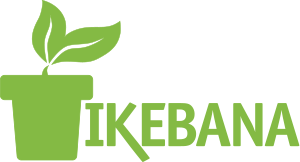Beyond the Headlines Navigating Pivotal Moments & the Evolving Story of ghana news.
- Beyond the Headlines: Navigating Pivotal Moments & the Evolving Story of ghana news.
- Political Landscape: Recent Developments and Key Players
- Economic Performance and Challenges
- Social Issues and Infrastructure Development
- The Role of Media and Information Access
Beyond the Headlines: Navigating Pivotal Moments & the Evolving Story of ghana news.
In the dynamic landscape of West African affairs, staying informed about developments in Ghana is crucial for understanding regional stability, economic growth, and socio-political trends. Understanding ghana news involves more than just headlines; it requires a deeper dive into the context, complexities, and nuances of events unfolding within the nation. This article aims to provide a comprehensive overview of the current situation in Ghana, examining key political, economic and social factors shaping its trajectory, from recent elections to infrastructure improvements and challenges within its healthcare system. We will explore the major themes influencing public discourse and the implications of these developments for the country and the wider African continent.
Ghana has long been considered a beacon of democracy and stability in a region often affected by political instability. Its commitment to free and fair elections and the peaceful transfer of power have garnered international praise. However, beneath the surface, challenges persist, including economic inequality, corruption, and the pressures of a rapidly growing population. These factors necessitate continuous monitoring and critical evaluation of the ongoing situation. The evolving media environment, with the rise of social media and citizen journalism, adds layers of complexity to information dissemination and verification, demanding a heightened level of media literacy from the public.
Political Landscape: Recent Developments and Key Players
The Ghanaian political scene has been marked by a competitive two-party system, primarily between the New Patriotic Party (NPP) and the National Democratic Congress (NDC). Recent electoral cycles have been closely contested and, while generally peaceful, haven’t been without disputes over results and allegations of irregularities. The current administration, led by President Nana Akufo-Addo of the NPP, has focused on initiatives aimed at economic diversification and job creation, particularly through industrialization programs like ‘One District, One Factory’. However, the implementation of these projects has faced hurdles, including funding constraints and infrastructural limitations.
The opposition NDC, under the leadership of John Dramani Mahama, continues to present a strong challenge, advocating for policies focused on social welfare and inclusive growth. The influence of traditional rulers also remains significant, often playing mediating roles in local conflicts and exerting influence on political decision-making. The upcoming local elections will be a crucial indicator of the political mood across the nation and its potential shifts. There have been calls for electoral reform, hoping to further strengthen Ghana’s democratic credentials and increase public trust in the electoral process.
Understanding the interplay between these actors—the ruling party, the opposition, traditional leaders, and civil society organizations—is essential for deciphering the direction of Ghanaian politics. The role of independent media and investigative journalism in holding power accountable remains critically important. Furthermore, internal party dynamics and power struggles within both the NPP and NDC influence policy-making and shape the national agenda. The challenge lies in fostering effective governance that addresses the needs of all Ghanaians and promotes long-term stability. Here’s a simple breakdown of key political parties:
| New Patriotic Party (NPP) | Nana Akufo-Addo | Liberal conservative, economic liberalization |
| National Democratic Congress (NDC) | John Dramani Mahama | Social democratic, social welfare |
| Convention People’s Party (CPP) | Nana Yaa Akyempim Jantuah | Socialism, Pan-Africanism |
| Progressive People’s Party (PPP) | Brigitte Dzogbenuku | Social democracy, corruption eradication |
Economic Performance and Challenges
Ghana’s economy has experienced significant growth in recent decades, primarily driven by its natural resource wealth, including gold, cocoa, and increasingly, oil. However, this growth has not always translated into broad-based prosperity, with economic inequality remaining a significant concern. The country has been grappling with issues of debt sustainability and fluctuating commodity prices, impacting its fiscal stability. Government initiatives to diversify the economy beyond raw material exports aim to boost manufacturing and tourism, but progress has been relatively slow.
The agricultural sector remains a crucial employer, but faces challenges such as climate change, limited access to credit, and outdated farming techniques. Efforts to modernize the agricultural industry and invest in irrigation infrastructure are ongoing, but require significant investment and strategic planning. Furthermore, the rise of the informal sector presents both opportunities and challenges, requiring policy interventions to promote formalization and ensure fair labor practices. The impact of global economic headwinds, such as rising inflation and supply chain disruptions, also has implications for Ghana’s economic outlook.
Here is a snapshot of some economic indicators:
- GDP Growth Rate (2023): 2.3% (estimated)
- Inflation Rate (October 2023): 31.7%
- Unemployment Rate (2023): 12.8%
- Main Export Commodities: Gold, Cocoa, Oil
Social Issues and Infrastructure Development
Ghana faces a range of social challenges, including access to quality healthcare, education, and affordable housing. While significant progress has been made in improving access to education, disparities persist between urban and rural areas. The healthcare system, though relatively well-developed compared to other countries in the region, still struggles with challenges such as inadequate staffing, limited infrastructure, and unequal access to healthcare services. Government initiatives like the National Health Insurance Scheme aim to improve access to healthcare, but require ongoing funding and efficient management.
Infrastructure development remains a key priority, with ongoing investments in roads, railways, and energy infrastructure. The development of the railway network is seen as crucial for facilitating trade and improving connectivity across the country. However, infrastructure projects are often hampered by funding constraints, bureaucratic hurdles, and land acquisition challenges. The expansion of renewable energy sources, such as solar and hydropower, is also gaining momentum, driven by the need to reduce reliance on fossil fuels and promote environmental sustainability.
Improvements in infrastructure are vital for overall social and economic progress. However, these projects can be complex, extending from regional transport issues through to irrigation expansion and upgraded road ways. Looking ahead, here’s a comparative overview of infrastructure investment:
| Roads and Highways | 1.5 | 2.8 |
| Energy (Power Generation & Distribution) | 0.8 | 1.6 |
| Railways | 0.3 | 1.2 |
| Water and Sanitation | 0.4 | 0.7 |
The Role of Media and Information Access
Access to information and a vibrant media landscape are critical for democratic governance and citizen participation. Ghana has a relatively free and diverse media environment, although challenges remain, including media ownership concentration, political interference, and the spread of misinformation. Independent journalism plays a vital role in holding power accountable and providing citizens with the information they need to make informed decisions. The rise of social media has transformed the way information is disseminated and consumed, but also poses new challenges related to the spread of fake news and online harassment.
Media literacy programs are becoming increasingly important to equip citizens with the skills to critically evaluate information and identify misinformation. The presence of community radio stations and local media outlets helps to ensure that diverse voices are heard and that local issues are addressed. Increasing internet penetration rates are expanding access to information, particularly in urban areas, but rural communities still face significant digital divides. The government and civil society organizations are working to bridge this divide through initiatives aimed at improving access to affordable internet and digital literacy training.
Here are key characteristics of Ghana’s media landscape:
- Diversity: A mix of state-owned, private, and community media outlets.
- Freedom: Generally regarded as having a relatively free press, but with ongoing challenges.
- Digital Growth: Increasing use of social media and online news platforms.
- Challenges: Misinformation, limited resources, political interference.
Ghana continues to grapple with balancing economic progress with social equity. Adapting to a world of rapid technological change and global volatility will demand strategic investment, sound governance, and a shared commitment to inclusive development.


Lascia un Commento
Vuoi partecipare alla discussione?Sentitevi liberi di contribuire!